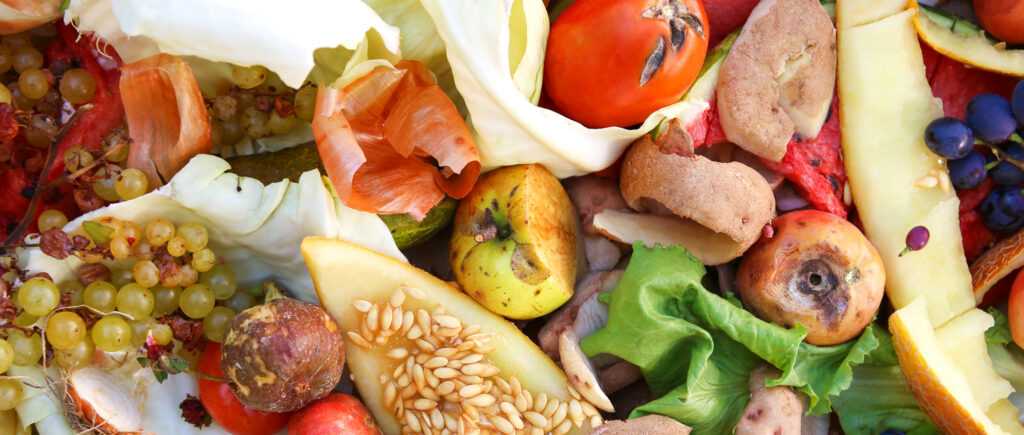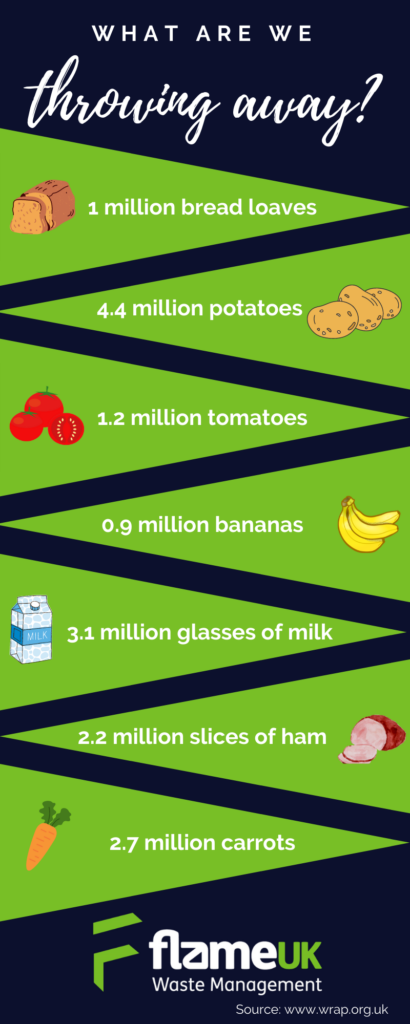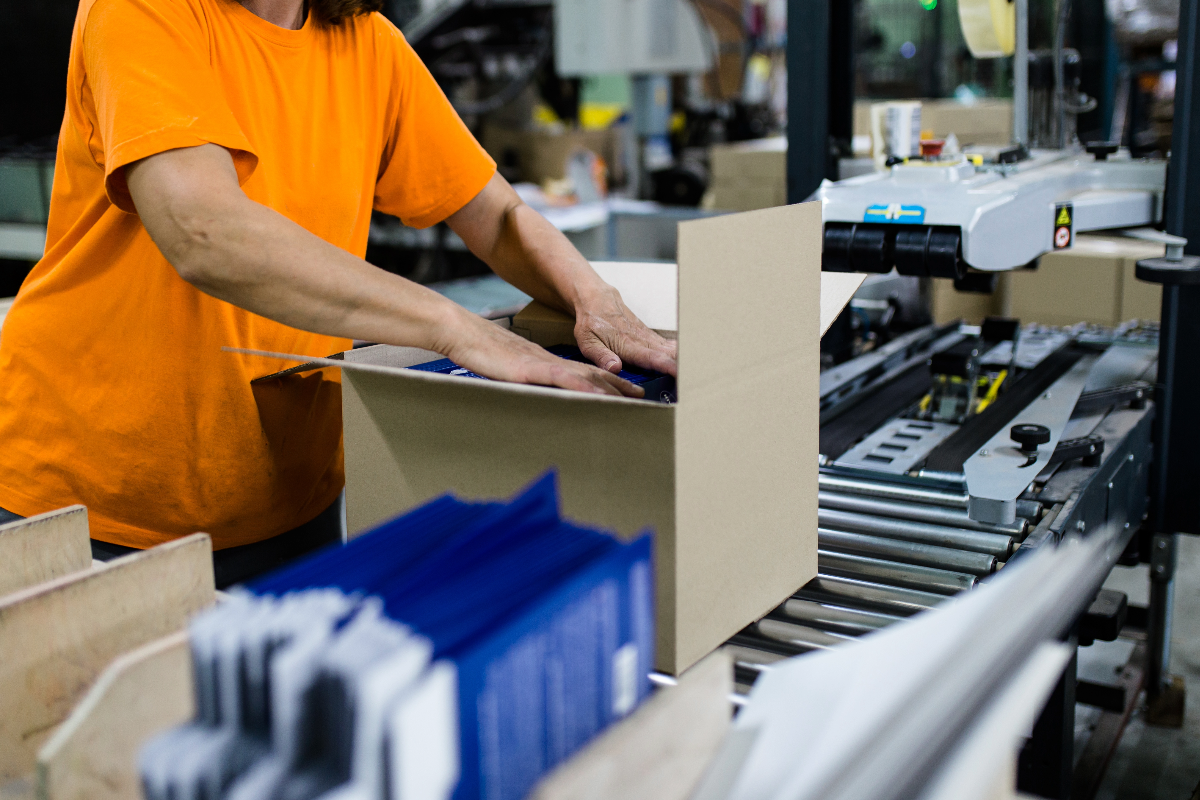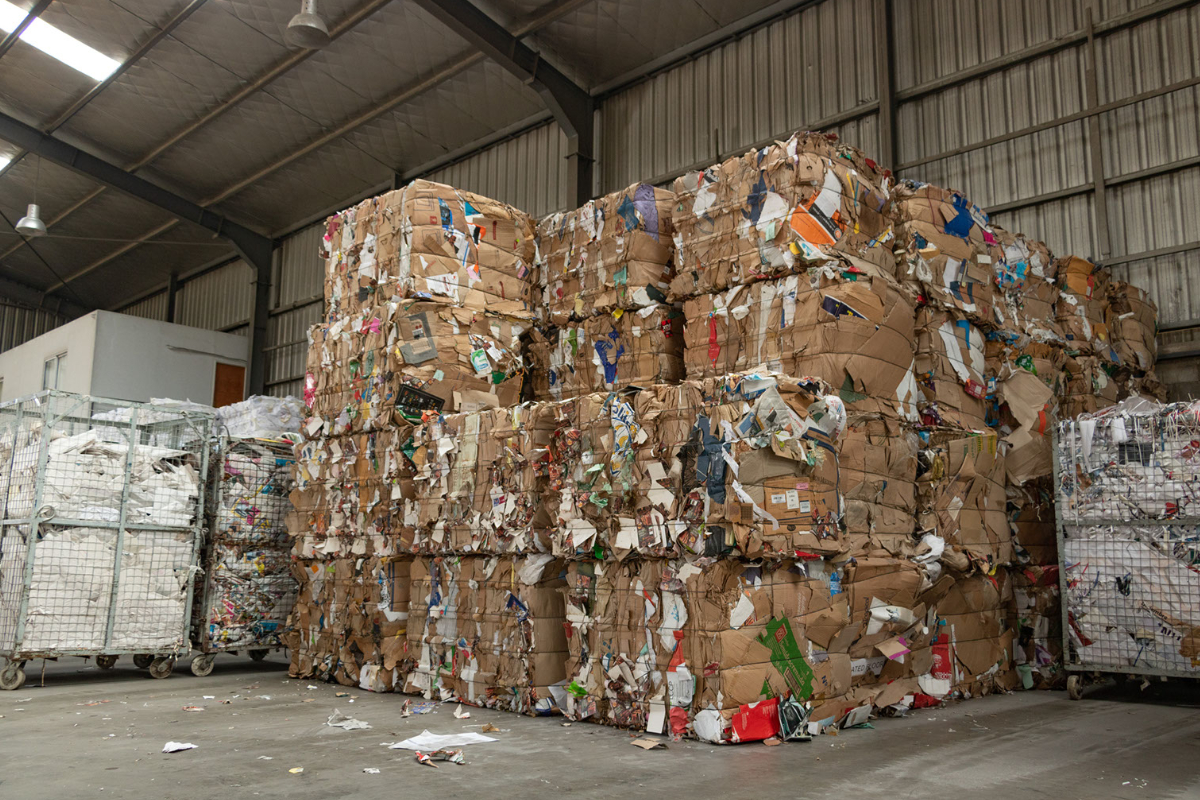BLOG
What happens to the food we throw away?

Why is food waste an issue?
Food waste is a big topic. There’s been some interesting stories in the news about “use by” and “best before” dates, with Morrison’s supermarkets recently announcing changes to how they display dates on milk. By changing from a “use by” to a “best before” date, it’s hoped that consumers will throw less away – milk is currently the third most wasted food and drink item in the UK.
Despite recent initiatives, we are still discarding a huge amount of edible food items as waste. Not only that, but we throw most of it into landfill!
How much food waste does the UK produce each year?
According to policy experts WRAP (www.wrap.org.uk) food waste from households and businesses in the UK is around 6.6 million tonnes per year. A massive 71% of which was intended to be consumed by people – the other 30% is considered the “inedible parts”.

How much food is wasted per household?
Did you know that over 70% of this edible food waste is generated by households? The equivalent of 4.5 million tonnes (excluding the “inedible parts”) of food is thrown away by households each year. This equates to a mind blowing 165kg or equivalent of £500 per year, per household.
The amount that UK households discard is 1.4 million tonnes lower (in 2018) than it was in 2007 – but it is still an enormous amount of waste.
We throw away the equivalent of 20 million slices of bread each year – that’s equivalent to a million loaves of sliced bread!
28% of what households discard is fresh vegetables and salad – we jettison 4.4 million whole potatoes; 0.9 million bananas; 1.2 million tomatoes and 0.7 million oranges. Not only is this wasteful and leaves a hole in our pockets, the environmental impact of food waste is huge – the food we waste is associated with more than 25 million tonnes of greenhouse gas emissions
Why should we separate food waste?
If your household disposes of food waste in your general bin, it’s time to think again. Even though food is a biodegradable product, sending it to landfill in your general waste is a no-no.
Once the food waste is mixed in with landfill, it’s surrounded by nonorganic materials meaning it doesn’t break down properly. The food waste also releases methane gas, 20 times more powerful than Co2, and a contributor to climate change. 20% of all solid waste in landfill is food waste, so on this scale, it becomes a big problem.
Of course the easiest way to reduce food waste is simply to only buy what you’ll use. Try to plan your meals before you go shopping so you only buy what you need: if you make too much then consider leftovers the following day or freezing a portion for another time. check out Love Food, Hate Waste for more tips on reducing food waste at home.
If your council has a kerbside food collection service, it’s easy to make sure you’re disposing of food correctly. You can usually dispose of most raw or cooked food, but check with your council to make sure. Sometimes kerbside food collections are included with the green garden waste – again check with your local council about what they can collect.
What happens to it once it’s collected?
Once collected, waste food is taken to an anaerobic digestion site to begin the process of breaking down food waste to produce biogas and biofertilizer. During the process, bacteria break down the material and reacts to give off methane gas which is captured within the dome of the AD holding tanks. The methane is then captured and used as a fuel to power generators which feed electricity back into the National Grid. The remainder of the material can then be used as fertiliser, local farmers collect the fertiliser and spread it back onto their fields creating the perfect closed-loop approach.
You can also save your food waste for home composting- items like veg peelings; egg shells; fruit cores and peel; tea bags and coffee grounds can be used for home composting. Just make sure you don’t include any cooked food, meat, fish or dairy.
What about food from hospitality or retail businesses?
Hospitality, retail and manufacture account for the remaining 29% of all food waste (1.1 million tonnes) a year.
Many outlets still don’t separate food waste from general waste – a mistake for both the environment and the pocket, and businesses that generate food waste should really consider a separate collection. Not only is it better environmentally, separating your waste streams could actually reduce the amount your business has to pay for waste collections.
There are flexible collections services available for food waste, and packaged, cooked and uncooked food can be accepted. In some areas, you can even recycle commercially compostable “disposable” table wear (for example, take out coffee cups or salad trays) but check with your waste management supplier first and make sure the items you are using are labelled as commercially compostable.
Putting food waste in with your general business waste can cause problems with its processing. Many waste processors are opting to create energy from waste, however, waste facilities cannot process waste that is contaminated with food into energy. This means that even after the waste has been sorted, landfill would be the only option.
Separating food waste from general waste in a commercial setting is simple. Food waste bins are around the same size as the bins we have at home, and come with a heavy duty liner to keep them clean and ensure that food waste can easily be bagged and dropped into the bins at the end of the day. When they are collected, the driver will replace the liner. Collections are flexible and depend on the needs of the business. The process for recycling the food waste is the same as that for household waste.
Contact us today
With food now being easy to recycle, businesses that generate food waste should really consider a separate food collection. If you’re unsure of where to start, have a look at our information on food waste collection. We’re experts on finding the best systems for you to manage your waste – contact us to talk you through your options so we can help find the best solution for you and your business.




